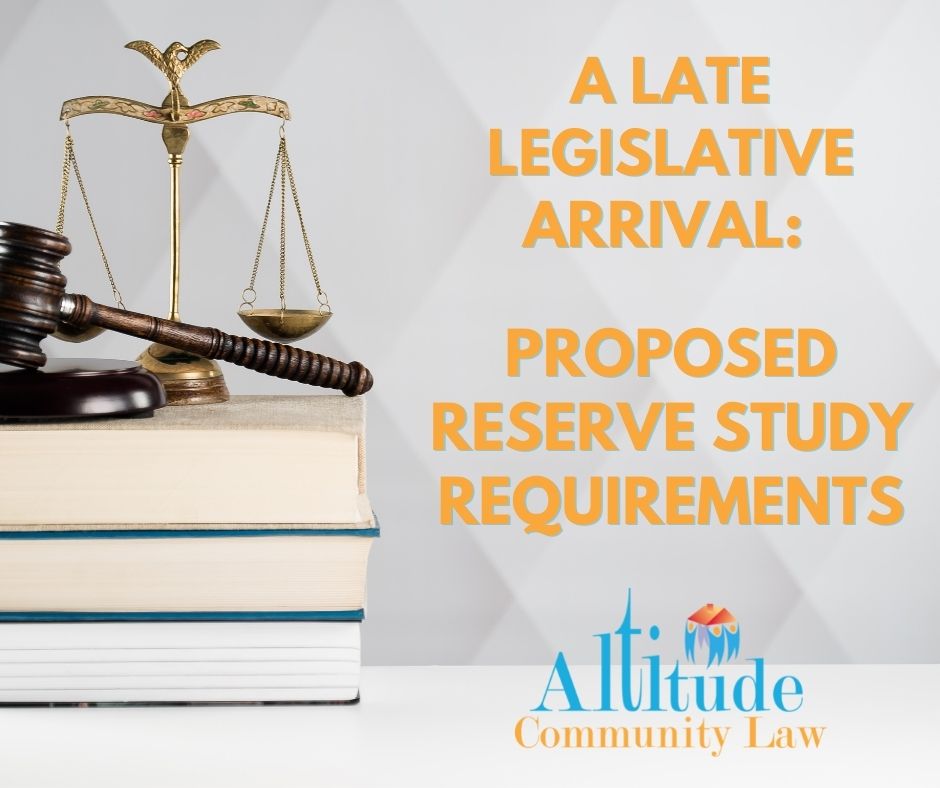
In direct response to the issues occurring across the nation, Rep. Titone (D) (Wheat Ridge) introduced HB HB22-1387, titled an Act “Concerning Measures to Ensure that A Common Interest Community has Adequate Reserve Funds.”
As drafted, HB22-1387 will do the following:
- Require the Developer of a Community to provide a reserve study for the community prior to transition;
- Create four different levels of reserve studies that must be performed. These range from Level I Reserve Studies (Full Reserve Studies) to Level IV Studies which are preliminary studies which are used for budgetary purposes.
- Require a Level I Study be performed at least every 30 years with updates every 5-years.
- Require an Association’s annual budget contain the following:
- Estimated Revenues and operating expenses of the Association;
- Information as to whether the budget has been prepared on a cash or tax basis of accounting;
- Show the total reserve funds of the Association as of the date of the preparation of the budget;
- The estimated reserve funds the Association will require for major shared components in the budgeted fiscal year based on the most recent reserve study or reserve study update;
- A general explanation of how the estimated reserve funds are computed;
- The amount the Association will need to collect for the fiscal year to fund estimated reserve funds pursuant to the most recent reserve study or update and the estimated contribution to the reserve funds in the budgeted fiscal year; and
- Notification by the board to owners of the method by which additional funding will be obtained if the board is not fully funding the reserve funds with common expense assessments.
Essentially the above will require a board to fully fund a reserve study or show where the money will come from for needed repairs to major components.
HB22-1387 then goes on to provide that repairs to major components are not subject to veto by the owners. Additionally, the board may impose special assessments if necessary to fund government-imposed requirements or to address emergent life circumstances, apparently without a vote of the owners. The Bill also limits investments of reserve funds in non-insured instruments to no more than 25% of the funds. Professional investment advice must be solicited to invest these funds in non-insured funds.
As always, please do not hesitate to contact an Altitude attorney at [email protected] or (303) 432-9999. And stay tuned to our Legislative Tracker for more updates on 2022 Legislation.
I doubt any of these geniuses even knew what a reserve study was before someone made an issue of it. To me, it’s a matter that each association should determine for itself. I’ve know very-few associations that followed their studies or provided funding to the suggested level, so why did they spend that money? And all the laws in the world are not going to assure that each association levies assessments high enough to cover operating expenses plus reserve expenses. People can only afford so much and costs are out of control these days.